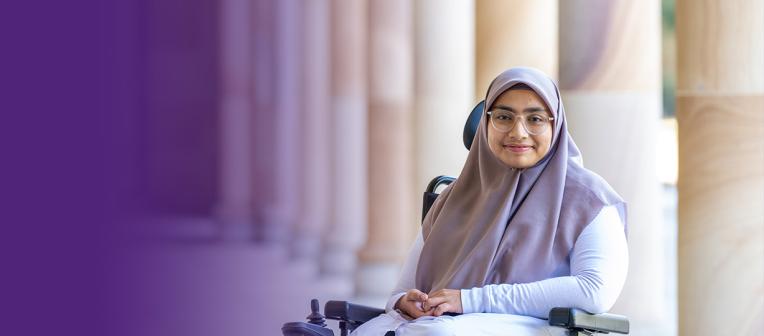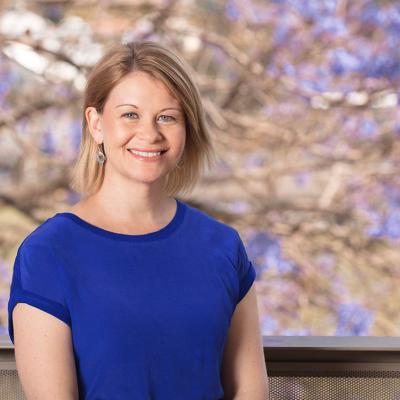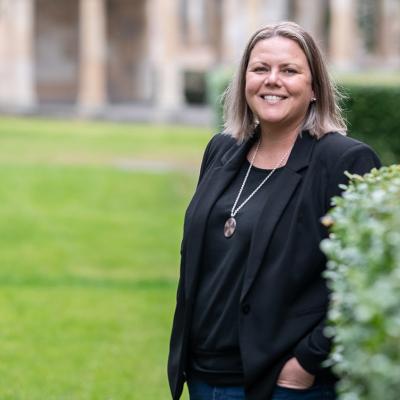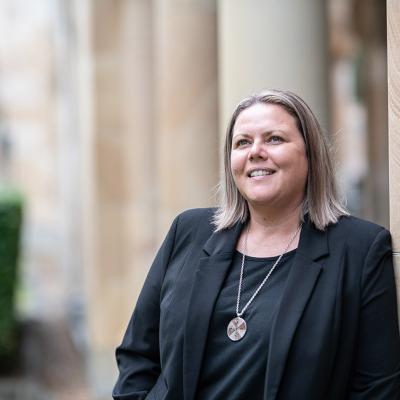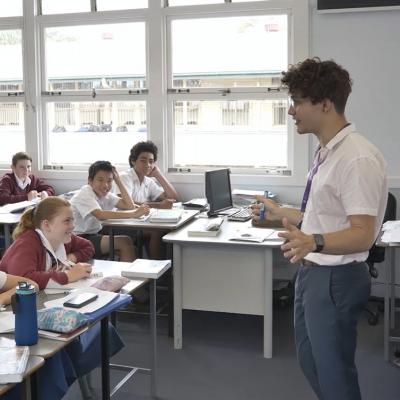If you want to study education at university as a postgraduate, you’re likely looking for flexibility, a wide range of specialisations to choose from, and plenty of academic support.
Undertaking a master’s degree in education is a big commitment, but it’s one that will ultimately help you hone your teaching skills, stay on top of emerging methodologies, and perhaps even break into a new area.
If you’re still on the fence about whether this is the best way forward for your career, we’ve sought advice from 2 UQ alumni who graduated with a Master of Educational Studies, to help you make an informed decision.
Brooke Avery-Overduin is a high school teacher specialising in behaviour support who returned to university to study a postgraduate degree in education after spending almost 2 decades in schools. Aisyah Ardani travelled from Indonesia to further her studies in education and gain a deeper understanding of the differences between the Indonesian and western schooling systems, especially in terms of inclusive education.
Both are eager to share their insights to assist you in deciding whether postgraduate education studies at UQ sounds like the right path for you.
- Remember: a postgraduate degree in education does not only mean a master’s. You can also choose to study a shorter and less intensive Graduate Certificate in Educational Studies.
- At UQ, there is a difference between our postgraduate educational studies programs and our postgraduate teaching programs – get a clearer picture of which is right for you.
What inspired you to study education as a postgrad?
Brooke: I'm passionate about helping new and beginning teachers to develop their skills in working with young people. Working with some of our most challenging students and seeing them find success because of the work of the educators around them and their understanding of behaviour has led to a passion for ensuring that we continue to do the best for all of our students.
Through a change in work circumstances, I gained some work-life balance back, which enabled me to enrol in postgraduate study.
Aisyah: I am passionate about education, especially inclusive education, because I believe that equitable education is a key to creating a better life for everyone.
Previously, I took a Bachelor of Education in Indonesia. At the end of my study, I did research on the implementation of inclusive education. This experience inspired me to deepen my expertise in this area. Hence, I decided to pursue a postgraduate degree in a linear pathway focusing on supporting diverse learners. I chose to do this in Australia to expand my skills and experiences with international exposure.
What has been your favourite course during your master’s in education?
Brooke: This is hard to say, but most likely EDUC7230: Working with students with challenging behaviours. Much of what I learnt in this course I was already putting into practice. It gave me not only the evidence base to know that what I do in my job is valid and works, but also an understanding of why it works. This has been invaluable in my professional life.
Aisyah: One of my favourite courses is EDUC7059 Foundation of the Science of Learning. It opened my eyes to the many myths around education. The learning activities were fun yet challenging. Furthermore, Stephanie Macmahon, the course coordinator, modelled many evidence-based teaching strategies that I can copy in my practices. Lastly, this course also provides opportunities to engage with other students from different specialisations.
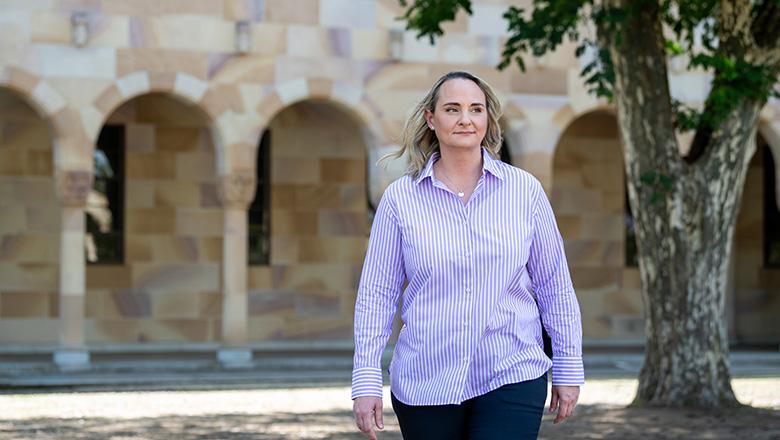
Brooke juggled full-time work and study to complete her master’s. Her advice? Be prepared, stay organised, don’t be afraid to ask for help, and believe in yourself.
Which postgraduate education courses and teachers have helped you the most?
Brooke: Definitely the courses aimed at my area of interest, behaviour. I also enjoyed the process of writing research proposals as it gave me some much-needed experience in that area. Associate Professor Shiralee Poed and Professor Karen Nankervis have been incredible mentors for me and continue to guide me through my journey into academia.
Aisyah: All the courses and lecturers in the specialisation of supporting diverse learners helped me challenge myself and get out of my comfort zone. The learning activities were interactive, allowing ideas to be shared between students from various backgrounds and countries. Furthermore, the lecturers helped me to contextualise evidence-based practices into my interests and passions. Indeed, this was a life-changing learning experience.
What does your average day look like as a postgraduate education student?
Brooke: I worked full time during the day so would arrive home and enter a Zoom lecture from 4-6pm Monday-Thursday in my first semester. Following the lecture, I would usually have dinner and get back on the computer to research or work on assignments until 8-9pm. I would usually devote at least 4-6 hours on the weekend to assignments, which enabled me to have them finished well before the due date.
In my final semester, I undertook a supervised research project and 2 courses, so the time commitment in lectures was less but the research commitment was far greater. I feel as though this has somewhat prepared me for a potential PhD as I have a reasonable understanding of the study requirements.
Aisyah: Usually, I had class in the late afternoon. So, from morning until the class began, I did some reading preparation, reflected on the previous class, and worked on assignments. In between, sometimes I did some leisure activities inside and outside uni to manage stress. (FYI: UQ has a lot of fun activities during study weeks.)
How has your master’s degree in education helped you achieve your career goals and find success in your field?
Brooke: Postgraduate study has completely transformed the trajectory of my career. After almost 20 years in schools, I am now in the process of applying to study a PhD so that I can continue working with new and beginning teachers and help them on their journeys to becoming teachers!
Aisyah: This experience helped me to contextualise my learning based on my needs, interests, and passions. Throughout my studies, I had the opportunity to explore Indonesian policies, curriculum, culture, and educational practices while also learning about western inclusive education principles. Learning from both sides (Indonesian and western perspectives) helped me to investigate what can be modified and improved for a better inclusive education in Indonesia.
Postgraduate study won't just advance and future-proof your career; it can also boost your earning potential. UQ postgrads earn an average 33% pay rise within 3 years of graduating.*
*Based on median salaries reported by domestic postgraduate coursework graduates employed full time and surveyed between 2023 and 2025 in the Graduate Outcomes Survey-Longitudinal by Quality Indicators for Learning and Teaching (QILT).
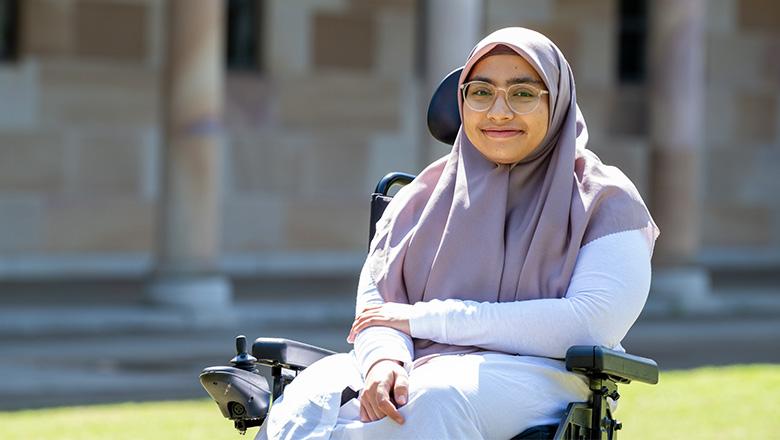
Aisyah encourages anyone nervous about adapting to postgraduate study to go for it! She credits the support she received from UQ and the local Brisbane Indonesian community for helping her adjust to her new life quickly.
Why did you choose UQ for your postgraduate education studies?
Brooke: My chosen field of study, Behaviour Support, is only offered at UQ, which told me that my area of passion is something that will be supported by the university.
Aisyah: I chose UQ because it provides high-class and inclusive learning experiences. At UQ, I got the opportunity to discuss and learn from inspiring lecturers. In addition, I met many friends from various backgrounds and countries that enriched my perspectives and knowledge.
Discover more reasons why students have chosen UQ for their master’s in education.
Is UQ the best university to study teaching?
Let’s take a look at the facts:
- UQ is #1 in Queensland and #41 in the world for education and training, according to QS World University Rankings by Subject 2025.
- UQ is #1 in Queensland and #4 in Australia for education, according to Times Higher Education World University Rankings 2026.
How can you study a postgraduate degree in education at UQ?
If you want to build on your skills as a teaching professional, gain the knowledge required for a specialised field of work, or conduct an extended research-based project, we recommend these programs:
If you want to undertake studies to qualify as a primary or secondary teacher after completing your undergrad, we recommend these postgraduate teaching degrees:
Great news! UQ is offering Commonwealth Supported Places (CSPs) in all these programs for study commencing in 2026, which means significantly reduced tuition fees. It’s just one of the reasons why now is the perfect time to start your journey as a postgrad at UQ.
Not sure if you’re prepared to go back to study? Download our guide to getting postgrad-ready in 6 months.

